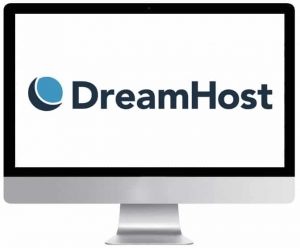Speed is everything!
Having a fast website is a must in today’s fast-paced world. Web users don’t like waiting for a slow site to load. Rather than wasting time, they just go to another site with faster loading times.
The speed of your hosting service will ultimately determine the success or failure of your site. Additionally, speed can affect your website’s SEO and overall visibility in addition to how users interact with your content. One of the most popular content management systems to use when building a website is WordPress.
Built for versatility, ease of use, and most importantly, speed.
However, you will only be able to get the speed you desire based on the features offered by your hosting provider. It is your provider who will ensure that your website is accessible. Therefore, a fast and reliable hosting provider makes all the difference.
Whatever you desire, there are plenty of options available to you, whether you’re building a brand new site or migrating an existing one to a new provider. Listed below are some of the fastest WordPress hosting providers on the market. You can use these hosting solutions to help your website reach its full potential due to their fast connections. You might want to check out our guide to cheap WordPress hosting if you’re on a budget.
Table of Contents
Top 10 Fastest WordPress Hosting Providers
1. InstaWP Live

InstaWP Live is one of the most versatile and fastest WordPress hosting platforms with built-in workflows. It’s designed to eliminate the complexities of staging, testing, and launching WordPress sites, all while delivering top-tier performance.
This is not ordinary managed WordPress hosting. With InstaWP Live, you get more than hosting—you get a complete development and site management environment. Whether you’re spinning up a staging site in seconds or managing multiple client projects from one dashboard, everything is built for speed and simplicity.
InstaWP Live runs on Automattic-backed WordPress-optimized cloud infrastructure. It includes real-time backups, 1-click staging environments, secure WAF protection, and a performance-optimized global CDN, all out of the box. You also get tools like version control, magic login, and a WP config editor to manage sites more efficiently.
For teams that want to move fast without breaking things, InstaWP Live offers a managed WordPress experience tailored to modern workflows.
2. Kinsta

One of the best WordPress hosting providers for those who are interested in managed services is Kinsta. The service is incredibly easy to use. The service is handled by professionals. All you have to worry about is making the best possible website. Should you need assistance, Kinsta’s support system is excellent.
The Google cloud platform is used by Kinsta. All site content is stored on SSD servers. Further, backups are performed on a daily basis to ensure that your data is never lost. A two-minute uptime check is also conducted by Kinsta so that issues can be fixed quickly.
Kinsta connection speeds are very impressive. To reduce load times as much as possible, the provider uses state-of-the-art technology. PHP 7.4 scripts, the Nginx balance loader, MariaDB management, and more are included.
3. Cloudways

Cloudways is another managed hosting platform to consider. It operates on a cloud network to ensure fast connection speeds. One of the cool things about Cloudways is that you can select which network to use. Hosting options include Google, Amazon Cloud, Digital Ocean, Linode, and Vultr.
Plans are completely scalable. When your site grows, you can simply add additional resources. A reliable support team is available when issues arise with the provider. However, the provider takes great care to minimize those issues.
Plan members have access to their dedicated resources, which keep connection speeds high. They can also access built-in caches. This includes PHP 7 servers, Cloudways CDN, and others.
4. SiteGround

SiteGround is a popular hosting provider with many features. It offers many types of hosting solutions. The hosting solutions include shared hosting, managed WordPress hosting, WooCommerce hosting, and cloud hosting.
There are data centers around the world. In the United States, there are several. Hosting options include the Netherlands, the UK, Singapore, and more. With all plans, you can reach a global audience through Cloudflare CDN.
Using and installing SiteGround is relatively simple. The provider has an easy one-click installation. In addition, you can utilize your favorite plugins, caches, and more. Additionally, Plans at SiteGround.com include free SSL certificates, 24-hour customer service, and free website migration.
5. WPengine

For people who want hands-off hosting, WPengine may be right for them. WPengine offers managed WordPress hosting for bloggers, entrepreneurs, and larger companies. You can choose from several plan tiers, enabling you to select an option that best suits your unique hosting requirements.
As with all managed hosting plans, each detail is taken care of. The hosting provider automatically updates WordPress, which can enhance performance. Additionally, you get enterprise-class speeds. Cloudflare CDN is used by WPengine to ensure that your site is available to everyone. WPengine also offers performance monitoring. The monitoring tool analyzes your site’s connection speed and looks for ways to optimize it further.
6. Bluehost

There can be no hosting review without mentioning Bluehost. Bluehost is one of the largest and most affordable web hosting companies. It is a recommended choice for WordPress sites. You can find it on WordPress.org!
Due to the platform’s optimization, the service works smoothly. In addition to one-click installation, you can access comprehensive WordPress analytics.
It is possible to choose from a variety of hosting plans. A managed WordPress hosting plan is available. All of the plans include free domains, free SSL certificates, and SSD storage. Hosting giant HostGator is owned by Endurance International Group, which also owns Bluehost. A wide variety of resources enables the provider to provide top-notch service at a reasonable cost.
7. Dreamhost

With DreamHost, everything you need to run a website is in one place. The company does more than just host websites; it can also register domain names, migrate sites, build new sites, and more. In terms of hosting, DreamHost is very reliable. This is one of the oldest names in the business, so the company has done a terrific job of building a reliable network. Moreover, the provider guarantees a 100 percent uptime rate, which is very rare in this industry.
The plans from DreamHost include daily backups and unlimited bandwidth. In addition to 24-hour customer service, all plans offer speed-boosting features. Most high-tier plans include CDNs and caching systems as well.
8. Inmotion

It is only recently that InMotion has become a managed WordPress host. HostGator is known for offering affordable hosting packages for bloggers and small businesses. Its entry into WordPress hosting is a good one for them.
You can trust those managed WordPress plans to handle your site for you. With most plans, you also get automatic updates, free SSL certificates, and backups. To increase speed, SSD storage, PHP 7, and custom caching are used.
In addition to hosting services, the provider provides a number of free perks. For instance, your WordPress website will be migrated free of charge to InMotion Hosting. Additionally, you can create your website from scratch using the free drag-and-drop builder.
9 Flywheel

Flywheel provides high-performance hosting services. Cloud technology provides very fast connections. The site data is stored on Google’s cloud network. As well as free CDN and custom caching, you get a free server. All these features work together to give you excellent performance.
There is an optimized version of Flywheel for WordPress. Because of that, it is quite easy to use. Hosting is fully managed to ensure that the process is as simple as possible. There are multiple hosting packages available. Packages range in size from small sites for bloggers to enterprise packages. No matter which plans you choose, you’ll get automatic backups, free site staging for a test site, free SSL certificates, and more.
10. Pressidium

Fast hosting is what Pressidium is known for, so you might want to check it out. Among the fastest providers on the market. Whatever plan you choose, your site will utilize resources the same as others. With a load-balanced hosting system, Pressidium ensures a high level of performance for all users.
In addition, you get a lot of key perks. There are adaptive caching systems, a powerful firewall system, and an SSL accelerator system.
Four Pressidium servers are located around the world. Depending on where you keep your site, you can choose Asia, Oceania, Europe, or North America. We manage all our sites and provide a slew of automatic features to ensure your peace of mind.
How to Find the Fastest Web Host
There are a lot more complexities to web hosting than most people realize. Making your website accessible globally is not an easy task. Luckily, most big providers are well-suited to the job these days.
Although there are still many variables that could impact the quality of the service you receive. Your top priority should be speed, so you should consider how every aspect of the hosting service affects your front-end experience. If you are deciding on a hosting provider, here are some considerations.
Data Center Locations
It is important to consider where the data centers of your provider are located. Most bloggers and entrepreneurs don’t think about this. Internet access is often seen as wireless and instantaneous, but that couldn’t be further from the truth. Web pages are still transmitted through wires. Thus, distance is an important factor in connection speeds.
When you select a hosting company to host your site, you’re loading your data onto their physical servers. These servers are housed in ultra-secure data centers across the globe. In today’s world, many hosting companies have more than one data center to serve specific regions. You must plan strategically here.
The easiest way to ensure your visitors get fast connection speeds is to choose a company with a data center that’s located close to their location. A server located in Singapore wouldn’t be the right choice for a site whose audience is primarily located in the United States. It’d be best to have a server in the U.S. mainland.
Visitors located farther from the data center will experience slower connection speeds. Luckily, there are ways to circumvent this problem. Let’s discuss them a little later.
Before deciding on a hosting provider, do some research on their data centers. Check where their data centers are located and how they operate. Having a server in the same country where your audience is located can be very beneficial in terms of speed.
Uptime Figures
The uptime of a network in web hosting is a measure of the network’s reliability. As a percentage, it is usually measured over a set period. Typically, the index is calculated over one month.
The higher the uptime, the better. You may have noticed that your preferred hosting provider advertises a 99 percent uptime rate. What this means is that servers are always online and working. But what about that one percent?
Downtime is what causes this. There is nothing that kills your website faster than downtime. It’s inaccessible. Your audience cannot see all of the content you created. This can significantly affect your bottom line. No matter if you’re a blogger who relies on advertising revenue or you run an e-commerce site where sales are made regularly, downtime is never good.
If you could, find a provider that guarantees close to 100 percent uptime. Although it would be nice if all providers provided 100 percent uptime ratings, that’s simply not possible. The servers themselves are physical machines that have to be maintained. They can exhibit performance issues at any time. The key is finding a provider that can handle those issues promptly and efficiently so that downtime is minimized.
Check the uptime differences between different web hosts with this Uptime Calculator.
You should look for providers that guarantee uptime. Guarantees usually mean that if the servers are unavailable for more than a specified period, you will be reimbursed.
Content Delivery Networks
We mentioned earlier how important it was to use a server that’s close to your audience. That remains true wherever your visitors are coming from. Suppose, however, that your audience is worldwide. If you have visitors from around the world, it is hard to decide where the site should be hosted. There will be some users who will experience slow load times, right?
It’s not necessary. There is a Content Delivery Network that can overcome this problem. In web hosting circles, a Content Delivery Network is often referred to as a CDN because it improves connection speeds dramatically. No matter if your customers are in the same country as your provider’s data center or thousands of miles away, they will benefit from faster loading times.
An online content delivery network (CDN) is essentially a global cache. Cached versions of your website are stored on the network. The CDN node nearest to the user will be used instead of the primary data center. Once that has occurred, the cached version of your website is displayed. Users won’t have to contend with that long-distance request since the CDN node is closer.
The process is beneficial to everyone involved. Your users will enjoy faster connection speeds, while your main server will experience less load.
Storage Technology
You’re right, I understand. Why does storage affect connection speeds? Well, it plays a far larger role than you might suspect in loading times.
The server on which your site is stored is physical. There has to be a place to store every media file or piece of content that you display on your site! Data must be transferred from the data center to the computer of your visitors. What type of storage your company use will affect your connection speed.
Just think of how far hard drives have come over the past 10 years. They have gone from old-fashioned spinning disks to flash memory. There are still hard drives that contain spinning magnetic storage today. A computer, external hard drive, or even a hosting server may contain one!
As a result, they are much slower than solid-state drives. They do not contain moving parts. Their storage is flash memory. Consequently, information is accessed more quickly. Depending on their specifications, SSD drives can perform anywhere from five to twenty times faster than a traditional hard drive! The difference is most noticeable for web hosting.
As SSD drives become more common, this is a good thing. Several of the largest web hosting companies have already made the switch to solid-state storage. When choosing a provider, ensure that it uses SSD drives for as fast a connection as possible.
Traffic and Bandwidth
Are you aware that your traffic can affect your connection speed? Servers aren’t all built to handle thousands of visitors at the same time. A server under heavy load will be under a lot of stress, resulting in some noticeable lag. If you have a cheaper hosting plan that uses shared hosting space, this is especially true. We’ll discuss this further.
Your bandwidth allotment should be taken into consideration when choosing a hosting plan. Your bandwidth is the amount of data you can transfer between the hosting server and your visitors’ devices. No downloads are required to use up your bandwidth. Someone accessing your site will use some data each time.
There are many companies that limit the amount of bandwidth they allow, which will affect the speed of your site. Assume you have 5 GB of bandwidth included as part of your package. That’s not a lot. The average visitor visits five of your site pages per month. This covers approximately 20,000 visitors per month. The numbers add up quickly! This would not support sites with high traffic.
You may be asked to reduce the load once the bandwidth is reached by the hosting provider. For example, visitors may be blocked or the connection speed reduced dramatically.
If you need a lot of traffic, make sure to choose a plan that will fit your needs. Many providers offer unlimited plans and unmetered plans, so you won’t have to worry about throttling.
Caching Systems
Caching systems help to dramatically improve load times, much like CDNs. Essentially, caching systems reduce the size of your website. The cached version of a page will be loaded first before any data from the main server is processed. This system can improve connection speeds quickly and easily.
There are many providers offering proprietary caching systems to help with site performance. It is also easy to find a caching system plugin for your theme if it does not. There are tons of plugins available for WordPress that serve as caches to enhance performance.
Is my hosting type important for speed?
Web hosting might be a bit of a mystery to someone who isn’t familiar with it. There are several different kinds of hosting plans available. There are several hosting plans available to accommodate any site owner. The type of hosting you choose will have an impact on the speed of your site, right?
No matter what you think, it does! These are some of the most common insurance plans.
Traditional Hosting Options
Hosting that is shared is the first option. Most websites use this kind of hosting. You may pay only a few bucks per month for this type of hosting. Therefore, it is very appealing to new bloggers and inexperienced website owners. With that low price tag, you will receive suboptimal speeds, however.
This is due to the fact that your website is stored on the same server as several others. Each site shares all the server’s resources, so your connection speeds are determined by others. For example, one site might experience a large amount of traffic. As resources are directed to the other site, yours will lag.
Next, let’s talk about VPS hosting. This is also known as a virtual private server. The website is still stored on a shared server when you choose this type of hosting. In this case, however, you may allocate rather than share the resources. Effectively, you’re creating an independent server inside the larger one.
A VPS has the advantage that you can often add more resources as your needs change. For expanding sites this is ideal. You won’t have to worry about performance problems caused by other sites’ popularity since all resources are allocated. The connection speed is faster, as well.
Last but not least, we have dedicated hosting. A dedicated server, as its name implies, is the main component of dedicated hosting. The server is yours exclusively! This is a good choice if you have a large site with a high level of traffic.
With dedicated hosting, you get plenty of resources at your disposal. Your connection speeds will therefore be higher.
What About Managed Hosting and Cloud Hosting?
The following two options can improve the speed of your site dramatically. Hosting on the cloud is a relatively new service that has gained traction in the last decade. Access to your site is made possible through cloud networks.
A cloud infrastructure, rather than a single physical server, hosts your website. The results are significantly faster loading times and more reliable service. Most cloud hosting providers utilize established cloud networks such as those of Google, Amazon, and others. No performance issues to worry about!
Managed hosting is the last but not the least. Managed WordPress hosting is exactly what you’d expect. It’s a hosted solution that’s taken care of for you. Having a professional manage these plans allows you to avoid worrying about the details. These plans are specifically tailored to meet your requirements. Many plans use cloud technology as well. However, they are somewhat more expensive than average hosting plans. In most cases, the cost increases are well worth it.
Managed WordPress hosting companies are knowledgeable about all that WordPress has to offer. Plugins can be used to enhance your experience, and the provider can optimize speeds to fit your needs. If you don’t want to be bothered with hosting details, you should look into this option.
How is Website Speed Measured?
Despite the many factors we discussed, all of them could have an impact on your website’s speed. How, then, can all these things be measured?
Measurement of provider performance can take several forms. In reality, the most commonly used parameters are the load times and the first bytes.
The speed of a webpage can be determined using a simple speed test. The aim is to determine the amount of time it takes for a site to fully load from a given location. There are various factors that could affect load times, including the location of your data center, CDNs, and more. Therefore, it is always a good idea to test things out a bit to see how users react.
When the first byte of data arrives, the byte time is measured. A visitor’s device sends a host request to your site’s server whenever they connect to your site. Data will then be sent to the server to start loading your page. We check the response times of websites with this measurement.
Conclusion
Launching a website requires selecting the right hosting provider. Your provider’s performance will impact how fast your visitors can connect. Your goal is to give your audience a great experience, don’t you think? If you are using a fast WordPress host, you can do just that while avoiding many of the pitfalls that come with slower alternatives.
